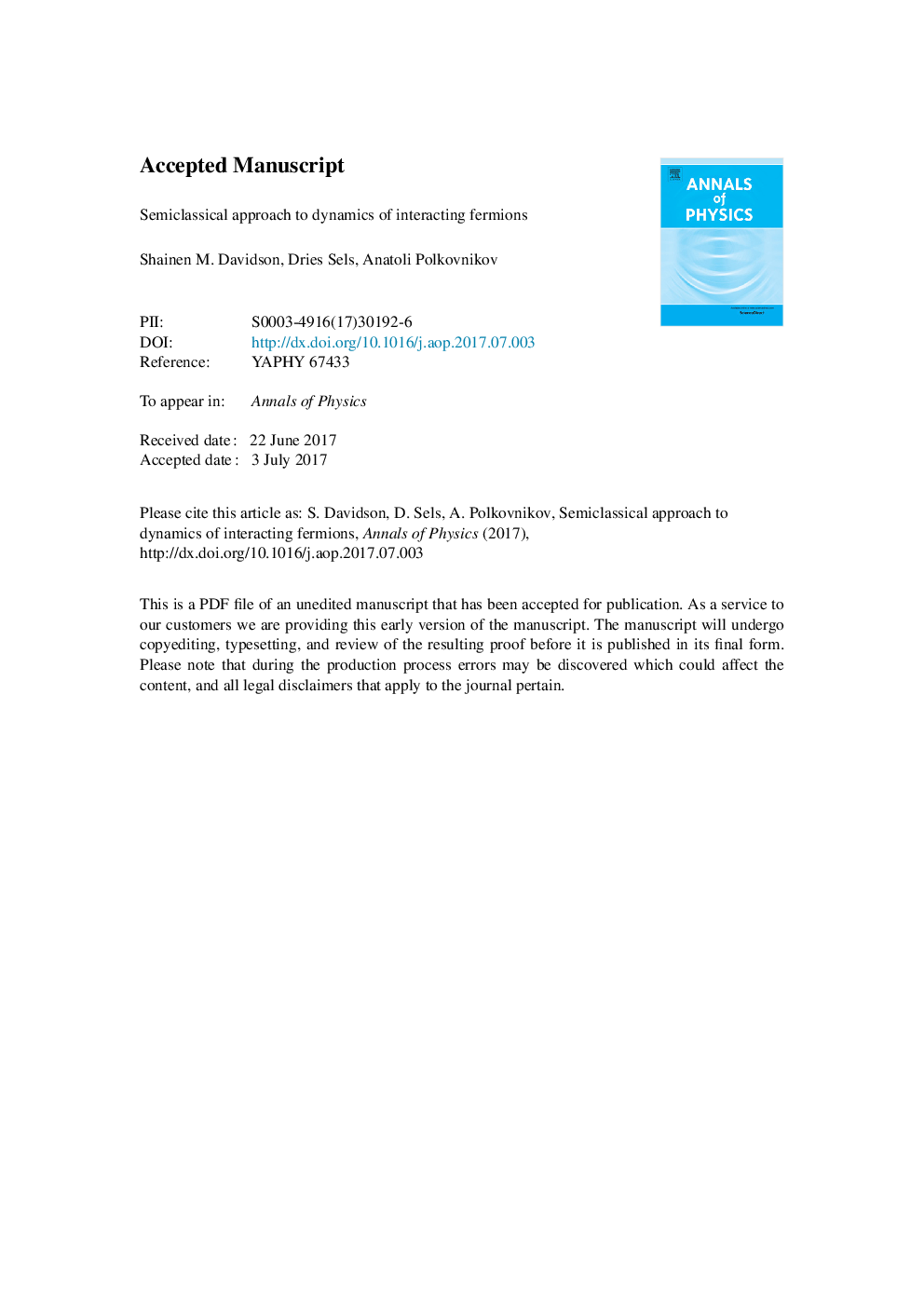| Article ID | Journal | Published Year | Pages | File Type |
|---|---|---|---|---|
| 5495859 | Annals of Physics | 2017 | 14 Pages |
Abstract
Understanding the behaviour of interacting fermions is of fundamental interest in many fields ranging from condensed matter to high energy physics. Developing numerically efficient and accurate simulation methods is an indispensable part of this. Already in equilibrium, fermions are notoriously hard to handle due to the sign problem. Out of equilibrium, an important outstanding problem is the efficient numerical simulation of the dynamics of these systems. In this work we develop a new semiclassical phase-space approach (a.k.a. the truncated Wigner approximation) for simulating the dynamics of interacting fermions in arbitrary dimensions. As fermions are essentially non-classical objects, a phase-space is constructed out of all fermionic bilinears. Classical phase-space is thus comprised of highly non-local (hidden) variables representing these bilinears, and the cost of the method is that it scales quadratic rather than linear with system size. We demonstrate the strength of the method by comparing the results to the exact quantum dynamics of fermion expansion in the Hubbard model and quantum thermalization in the Sachdev-Ye-Kitaev (SYK) model for small systems, where the semiclassics nearly perfectly reproduces correct results. We furthermore analyse fermion expansion in a larger, intractable by exact methods, 2D Hubbard model, which is directly relevant to recent cold atom experiments.
Related Topics
Physical Sciences and Engineering
Physics and Astronomy
Physics and Astronomy (General)
Authors
Shainen M. Davidson, Dries Sels, Anatoli Polkovnikov,
